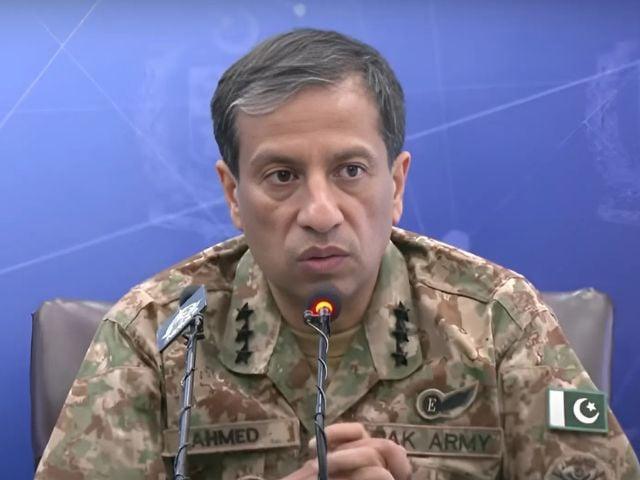Inter-Services Public Relations (ISPR) Director General Ahmed Sharif Chaudhry described the recent tensions with India as more than a military resistance that called it a “struggle for truth” that was led across information, diplomatic and strategic fronts, in an interview with Al Jazeera.
DG ISPR criticized the Indian government and the media for spreading what he called false tales after the Phalham incident where India claimed Pakistani involvement.
He rejected the notion that India can block Pakistan’s water as “crazy thinking”, observing that six large rivers originate from Kashmir.
DG ISPR reiterated that Kashmir remains an international dispute involving Pakistan, India and China, and should be resolved through the UN decisions and Kashmiri’s will.
“Only a crazy person can believe that India can stop Pakistan’s water. It is not possible to cut off the water for 240 million people,” said the military spokesman who responded to Indian Prime Minister Narendra Modi’s comments.
Modi had said on Thursday that Pakistan would not get water from waters to which India has rights. The declaration came a month after a deadly attack in Indian illegally occupied Jammu and Kashmir (IIOJK) led the New Delhi to suspend a key-sharing agreement between the neighbors.
DG ISPR pointed out that six rivers originate from the Kashmir region and that Kashmir, during the United Nations decisions, remains a contentious territory.
“If Kashmir joins Pakistan, India becomes a lower riparian state. It will then be our decision on how to control the water,” he said.
DG ISPR added that Pakistan had not deployed the full strength of its conventional powers, noting that many remain focused on anti-terrorism operations in Balochistan and Khyber Pakhtunkhwa, where India is accused of sponsoring militaryness.
“Pakistan challenged India to present evidence of a neutral third party or international community, but they have not delivered anything,” he said, adding that New Delhi’s Ministry of External Affairs recently admitted that the investigation is still ongoing.
The ISPR chief also denied the recent claims in Indian media, which claimed Pakistani involvement in an attack on the golden temple and called the claim “the largest is possible”.
“We protect Sikh -Hellig places. We honor Kartarpur SaHib and respect our Sikh brothers. Our culture, values and religion prohibit attacks on religious or civilian goals.”
DG ISPR said India’s credibility erodes due to internal oppression, including internet closures and crashes on the dissent.
“You can’t build confidence in imprisoning journalists or banning thousands of sites. Has Pakistan imprisoned a single journalist during this conflict? Definitely not,” he said.
The spokesman praised coordination between Pakistan’s army, fleet and air force as well as unity with political leadership and the public.
He pointed to the air defense performance under the air management 6 to 7 May as an example of professional expertise, citing JF-17 Thunder and J-10C fighter jets and the insertion of Fateh-1 and Fateh-2 surface-to-surface missiles.
“This air campaign will be investigated in military colleges for decades,” he said.
Global powers, including the United States, China, Saudi Arabia, Qatar and UAE, understand the serious risks of escalating between two nuclear armed nations.
“India plays with fire. We practiced wisdom and restraint to avoid a wider conflict,” he said.
While a ceasefire is currently in place, Chaudhry said true peace depends on India changing his “war-occupied political thinking” and ending what he described as systemic oppression of minorities, including Muslims, Christians, Sikhs and Dalitters.
“Of course, such oppression provokes reactions that India refuses to tackle,” he said.
He linked the Hindutva ideology with increasing domestic extremism in India, arguing that India exerts his internal problems by accusing Pakistan.
DG ISPR confirmed Pakistan’s strategic alliance with China and called it a partnership of decades based on mutual respect and regional stability.



